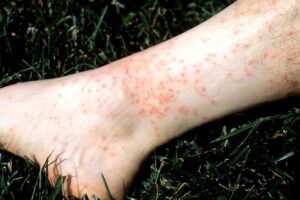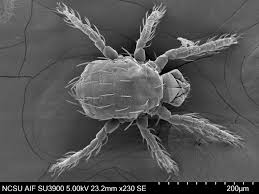From the Vine: What’s Eating You?
go.ncsu.edu/readext?1015498
en Español / em Português
El inglés es el idioma de control de esta página. En la medida en que haya algún conflicto entre la traducción al inglés y la traducción, el inglés prevalece.
Al hacer clic en el enlace de traducción se activa un servicio de traducción gratuito para convertir la página al español. Al igual que con cualquier traducción por Internet, la conversión no es sensible al contexto y puede que no traduzca el texto en su significado original. NC State Extension no garantiza la exactitud del texto traducido. Por favor, tenga en cuenta que algunas aplicaciones y/o servicios pueden no funcionar como se espera cuando se traducen.
Português
Inglês é o idioma de controle desta página. Na medida que haja algum conflito entre o texto original em Inglês e a tradução, o Inglês prevalece.
Ao clicar no link de tradução, um serviço gratuito de tradução será ativado para converter a página para o Português. Como em qualquer tradução pela internet, a conversão não é sensivel ao contexto e pode não ocorrer a tradução para o significado orginal. O serviço de Extensão da Carolina do Norte (NC State Extension) não garante a exatidão do texto traduzido. Por favor, observe que algumas funções ou serviços podem não funcionar como esperado após a tradução.
English
English is the controlling language of this page. To the extent there is any conflict between the English text and the translation, English controls.
Clicking on the translation link activates a free translation service to convert the page to Spanish. As with any Internet translation, the conversion is not context-sensitive and may not translate the text to its original meaning. NC State Extension does not guarantee the accuracy of the translated text. Please note that some applications and/or services may not function as expected when translated.
Collapse ▲Summertime is the peak season for outdoor events. BBQ’s, back yard sports, hikes, picnics, camping trips, fishing and many other activities could be on your agenda. All seem harmless, or so you might think, but there is almost an invisible danger outdoors just waiting for someone to walk by and become a quick meal. Chiggers, also known as Red Bugs in Sampson County, belong to the Trombiculidae family and are larval mites, closely related to spiders and ticks. They are extremely small (.3mm or less) and are often reddish or orange in color, making them difficult to see without magnification.
Chiggers are found in grassy fields, forests, gardens, and moist areas near lakes or streams. They thrive in environments with tall weeds, grasses, and blackberry thickets. They complete four life stages consisting of eggs, larva, nymph, and adult. Only the larval stage is parasitic (meaning they feed on people and animals). After hatching, the larvae climb onto vegetation and waits to find a host. Once a host walks by, the chigger will grab onto the person or animal, and make their way to exposed skin and begin feeding.
Contrary to popular belief, chiggers do not burrow under the skin. They clamp onto the skin with their legs and inject saliva that contains digestive enzymes into the skin. These enzymes liquefy skin cells, which the chigger consumes. The bite can result in extreme or intense itching, redness, and welts. The itching can persist for weeks, even though the chigger detaches and falls off after a few days.
The best way to avoid chigger bites is preventing them from getting onto your body. Wear long sleeves, long pants, and closed-toe shoes when walking in areas where chiggers are common. Tuck pant legs into socks or boots to prevent chiggers from accessing your skin. Apply insect repellents containing DEET, permethrin, or sulfur to clothing and exposed skin. These repellents are effective at deterring chiggers. If exposed to chiggers, or if you have been in an area known to have chiggers, shower and scrub your skin with soap and water immediately after potential exposure. Wash your clothes in hot water to kill any lingering chiggers.
To control chiggers in the landscape you should keep your lawn well-mowed and remove tall weeds and brush from around your property. Insecticides can be applied to areas where chiggers are prevalent. Products containing bifenthrin, carbaryl, or permethrin is effective. Follow all safety instructions and read the label before using any pesticide.
If you find yourself to be a victim of chiggers, apply anti-itch creams, such as hydrocortisone or calamine lotion, to affected areas. Oral antihistamines can also help reduce itching and inflammation. Avoid scratching the bites. Scratching can increase the risk of infection. Keep the area clean and apply antiseptics if necessary.
By understanding chigger biology and implementing these prevention strategies, you can significantly reduce the likelihood of chigger bites and the discomfort they cause.





